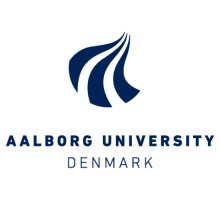The traditional role of a PhD supervisor as an academic “sparring partner” is under threat from a new business-led model of doctoral education in which students are viewed as “employees”, a study claims.
As universities seek closer links with industry, many PhD supervisors are abandoning their former mentoring roles to become project leaders, with doctoral students seen as a “work resource…expected to contribute with his or her own creativity and ideas within the given framework”, according to Pia Bøgelund, assistant professor in the department of development and planning at Aalborg University in Denmark.
Using interviews with PhD supervisors at Aalborg, Dr Bøgelund identifies three distinct identities among supervisors in a paper published in the International Journal of Doctoral Studies.
These are: the traditional academic, whose primary aim is to educate graduates; the market-driven scholar, whose work centres on producing useful ideas that generate profit; and the social idealist, who sees knowledge production as a way to effect societal change, often overseas.
One academically oriented supervisor explains how his main focus was to establish a student’s “critical perspective…and to watch someone [turn] into an academic”.
“Passion and a professional, critical sense are of the utmost importance” for this type of supervisor, whose teaching style would be characterised by “long, open discussions without suggestions for research questions”, writes Dr Bøgelund.
In contrast, a business-minded supervisor was more concerned with “profitability, entrepreneurship and innovation” and how “ideas and inventions lead to the development of new products, which, in the end, generate profit”, she says.
To this end, the focus of their PhD students is to produce “useful results” overseen by an “actively controlling” supervisor, with several candidates often working on similar projects “directed towards fulfilling market…demands”. The “relation to the PhD student may contain certain similarities to the relation between an employer and an employee”, says Dr Bøgelund.
“People in industry typically don’t have the time to go into detail with anything…and that’s where PhD students come in handy,” says one market-oriented supervisor interviewed for the study.
Meanwhile, the socially engaged supervisor might typically focus on research that impacts on an international student’s homeland, the paper explains.
One supervisor explains that the aim was “producing people who can be innovative in their systems”, adding that “we try to make them a little more democratic, a little less prejudiced, a little more Danish”.
But Dr Bøgelund contends that the market-driven supervision model is becoming “dominant…to some extent at the expense of the two other agendas”.
This pressure for more useful results and publications, rather than a focus on doctoral training in a discipline, had infuriated many academically focused supervisors, who perceived a risk to quality, she says.
“That a PhD should be granted for writing three articles” was “foolishness”, insists one supervisor who claims the “basics are neglected” in the push to make PhD students take part in making “deliverables”.
“Everything is about writing publications…before they spend time constructing an understanding of literature,” says another supervisor.
The move towards a market-led system “implies a more leading and visible role for the supervisor, even in terms of what to study”, believes Dr Bøgelund, who claims it is now “more complex to be a PhD supervisor”.
“The university has several legitimate agendas, which the supervisors are asked to balance, not necessarily in a single PhD project, but at least at a more aggregated level,” she says.
POSTSCRIPT:
Print headline: Traditional PhD ‘under threat’ from commercially minded supervisors
Register to continue
Why register?
- Registration is free and only takes a moment
- Once registered, you can read 3 articles a month
- Sign up for our newsletter
Subscribe
Or subscribe for unlimited access to:
- Unlimited access to news, views, insights & reviews
- Digital editions
- Digital access to THE’s university and college rankings analysis
Already registered or a current subscriber?







